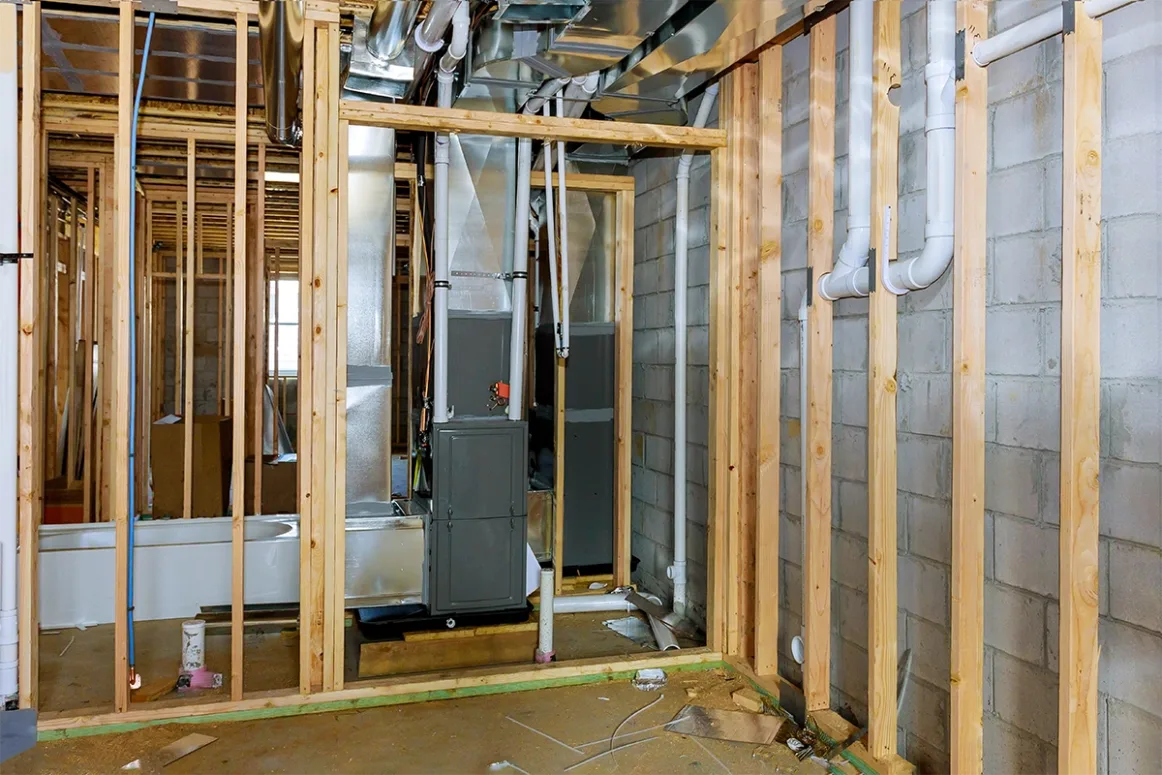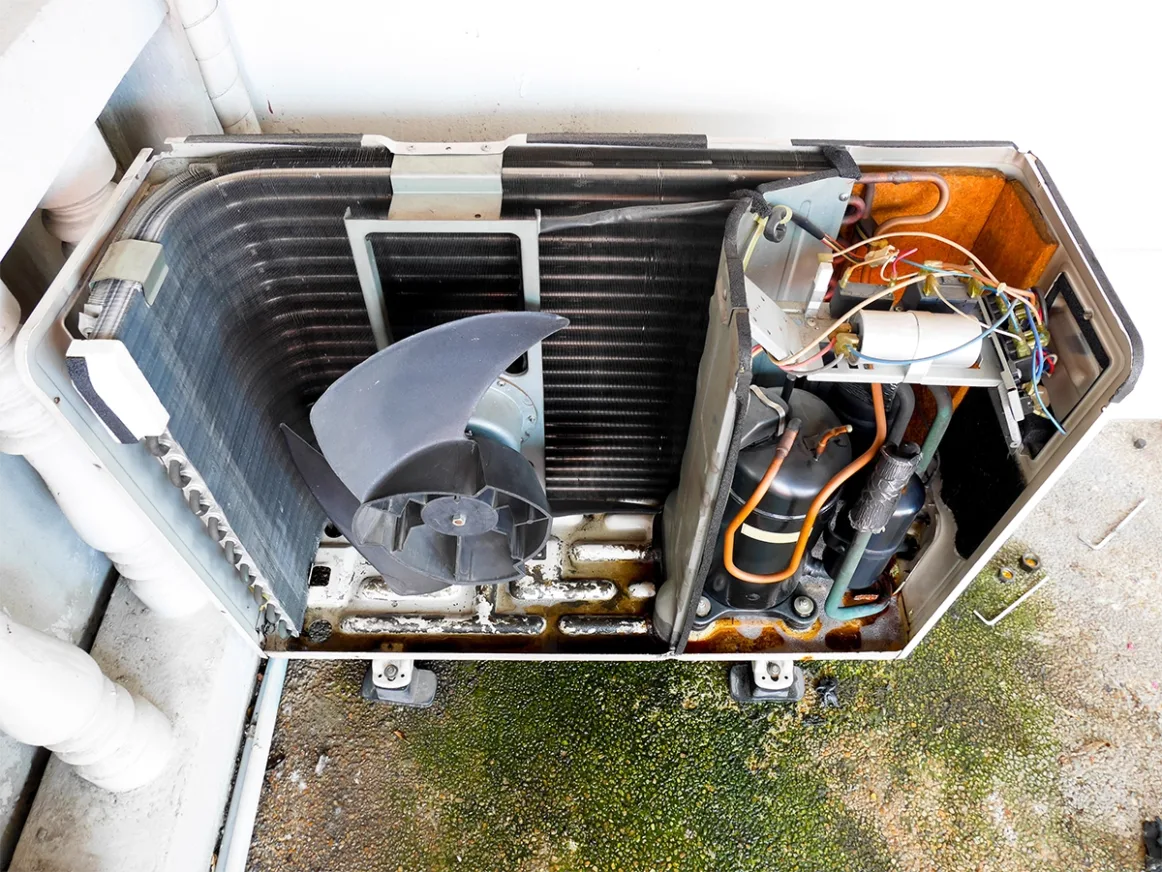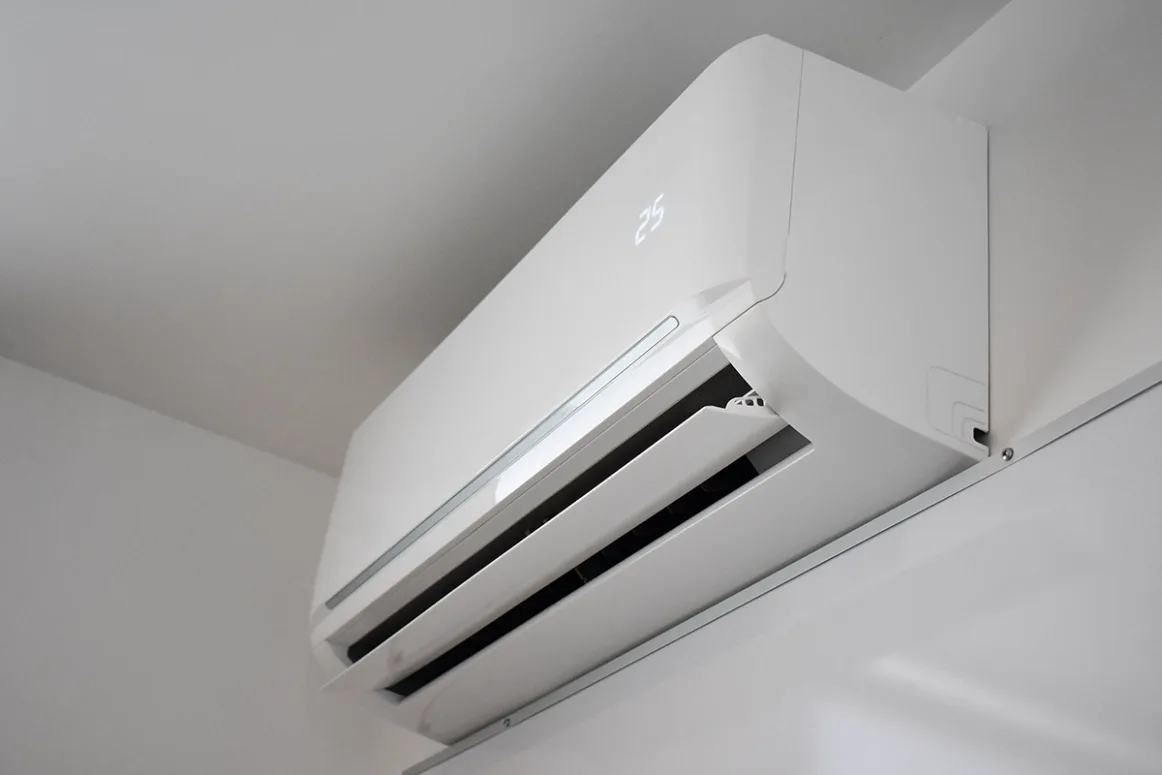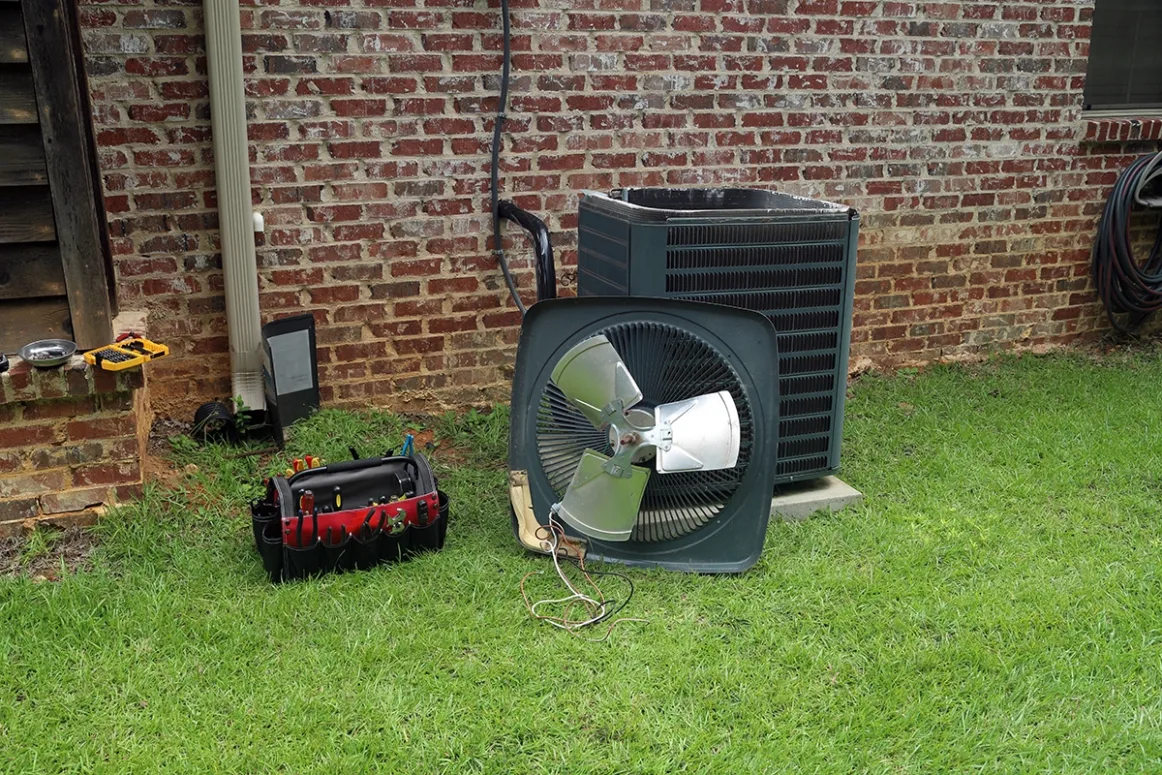
Energy Efficiency in HVAC Terms: Understanding and Improving Your System
Russell Heating and Air, located in Canton, GA, comes to the same conclusion: energy efficiency in heating and cooling systems is not just a phrase but an expectation to be met. With more than ten years in the service, we take it upon ourselves to educate others on energy efficiency in HVAC terms and related concepts and recommend the best practices to achieve optimal heating and cooling of buildings. This will help you appreciate energy efficiency and how it will be helpful to you, too.
What is Energy Efficiency in HVAC Terms?
Energy Efficiency in HVAC Systems measures how energy efficient your HVAC equipment is in achieving the anticipated comfort level conditioned by the building’s occupants. A good HVAC system satisfies requisite heating and cooling functions, where heating and cooling loads are reasonably moderate, and energy use is minimized for economic and ecological reasons.
Interpretation of Common HVAC Terminology Definition
The SEER or Seasonal Energy Efficiency Ratio defines how energy efficient the given air conditioner and pump performs its duties during a specified cooling season duration. The total cooling output is divided by the total electrical energy input to accomplish this purpose. In most cases, the system with a higher SEER rating is said to be less expensive. For instance, the energy-efficient system has a rating of 16 SEER compared to a system with a rating of 13 SEER. When selecting a new air conditioner or heat pump unit, such consideration should be made to achieve the required design efficiency and energy rating performance concerning energy efficiency ratio rating gears.
Annual Fuel Utilization Efficiency is used when referring to gas furnaces, and it shows the efficiency as a percentage of fuel supplied to the apparatus that is converted into heat energy. For example, an AFUE rating of 90% implies that 90% of the heating fuel in nature goes into making your house warm, while 10% is never utilized and goes in vain. Such models come with higher AFUE ratings, which, as a result, help in converting the icing amounts to heating, thereby saving a lot of heating bills. Such consideration should be made when selecting a furnace so that no energy is wasted in wasteful loss of fuels.
- EER (Energy Efficiency Ratio) The Energy Efficiency Ratio is put into application to ensure internally that the air conditions are functioning in a condition of the maximum temperature, and only is that is only possible with this system when the ratio of cooling output and the system power input is determined at. The system divides the number of cooling BTUs delivered over a defined temperature into operations at that specific temperature. Whereas the seasonal energy efficiency ratio varies during summer, EER gives the measures for each day. Understanding EER enhances how well the air conditioning configuration can be analyzed in terms of adverse performance.
- . HSPF (Heating Seasonal Performance Factor) The Heating Seasonal Performance Factor represents the ratio of the gross heating output of the heat pump in the heating mode to the total electrical energy input employed in that mode. Expressed differently, the term is simply the amount of energy emitted over an energy-consuming load over a specified time. It is to be noted that the higher the temperature, the more efficient the heater is; hence, less energy is used. When buying a heat pump, it is necessary to check the heating’s seasonal performance rating to ensure that the pump will work effectively and economically.
- BTU (British Thermal Unit)
British Thermal Unit (BTU) refers to a unit for measuring energy. In HVAC systems, the amount of heat necessary to increase the water temperature by one degree Fahrenheit for a mass of one pound. Knowing what size HVAC to use in the house is essential. What happens when the system is either too small or oversized? Simply, it results in wastage, incurring additional energy costs and uneasiness. Take into account that your HVAC equipment is correctly sized.
Why Energy Efficiency is Important
- Lower Utility Bills
One of the most significant advantages of using energy-efficient HVAC systems is the utility bills. By using less energy to achieve this level of comfort, energy-efficient systems can cut down on the money usually used to heat or cool the house monthly. In addition, proper maintenance of high-efficiency equipment pays off in the long run through savings.
- Improved Comfort Level
Energy efficiency in HVAC terms saves money and increases comfort. Energy-efficient systems have better humidity control and less temperature differences. In effect, energy-efficient systems achieve more favorable performance so that people can rest in a more comfortable atmosphere throughout the year.
- Environmental Benefits
The less energy consumed, the fewer greenhouse gas emissions and the lower carbon footprint. Energy-efficient systems like home HVAC systems promote the environment’s well-being by minimizing the iota of energy used to introduce heat and cooling functions. So, using energy-efficient equipment saves the earth and increases the chances of sustainable development.
- Increased Property Value
The homes fitted with energy-saving facilities show more value to prospective homeowners than other homes. Every one seeks the urge for energy saving which is able to boost the market value of the property. Furthermore, the high-efficiency HVAC equipment positively impacts the home’s attractiveness to buyers whose markets seem to be already set.
How Russell Heating & Air Can Help You Achieve Energy Efficiency
For Russell Heating & Air, we take it upon ourselves to help the people of Canton, GA meet the maximum energy efficiency standards of their HVAC systems. The following are the advantages of our services:
- Expert Consultations
The expert technicians on board do not just assess your HVAC system but rather go over it with a fine-toothed comb and render the most useful suggestions. Accurate clarification of the criteria that need to be satisfied in order as far as improvement for energy efficiency is concerned is offered.
- Professional Installations
We focus on the commercial installation of high-efficiency appliances for the routine use of the people in the premises. The people involved in this service will advise in the selection of such systems, they will undertake the new system’s installation, and they will ensure that the efficiency limits are not only attained but also surpassed.
- Comprehensive Maintenance
We emphasize that regular maintenance must be observed so as to ensure that the energy efficiency of the HVAC system does not run out, and also for enhancing the usability of the system for even longer. The total maintenance services at our disposal cover the most important surface checks, cleaning, and tuning in repair services for your comfort and efficiency needs throughout the seasons.
- Energy-Efficient Upgrades
If your current HVAC system is old and obsolete or running inefficiently, we can help you change it to a more modern, energy-efficient unit. We will help you in choosing units that have high ratings with regard to SEER, AFUE, and HSPF, so as to ensure maximum performance and savings are obtained.
- Customized Solutions
Every property is different and so is the HVAC system that comes with it. This is why we provide customized solutions which specifies your needs so that the proper heating, ventilation and air conditioning is installed in your residence. Our aim is to provide the service that coincides with the comfort of the customer and does not prevent saving energy.
Tips for Making the Most Out Of Energy Efficiency in HVAC Terms
- Purchase Programmable Thermostats
Programmable thermostats provide a mechanism that allows you to adjust your home temperature at specified intervals. Through this technology, you can re-establish when heating or cooling is not necessary to save on energy, and when it is needed to increase the temperature levels to a comfortable zone.
- Make Your Home Air Tight
Sealing and insulating your home surfaces reduces thermal envelope leakage and hence increases the energy efficiency in HVAC terms. Make sure that the doors, windows and other opening are closed tightly and do not cause air infiltration so that forces that the heating and the cooling systems have to exert are minimized.
- Clean or Change Filters on a Regular Basis
In order for it to function properly and more effectively it is advisable to maintain a consistent airflow through HVAC filters by changing or cleaning them regularly. Such filters however, when blocked can cause reverse airflow which increases operational costs incurred by the system.
- Have Yearly Maintenance
Preventive Measure is very important so that the HVAC systems are maintained in working order as they should. Make it a routine to book an appointment with a qualified contractor to come and perform various activities: inspection, cleaning, and tuning the HVAC system to ensure that it is in good working condition.
- Move to Higher Efficiency Equipment
Consider substitution of your outdated HVAC system for a modernized one if your current equipment is deliberate due to old age or if the performance is substandard. Most equipment nowadays are designed to do their work better with advanced technologies showing that they are indeed economic in their operation thus reducing the monthly energy charges and improving the standards of living.
Make an Appointment with Russell Heating & Air
Improving the efficiency of the HVAC system will no only be cheap for residents but also make their homes comfortable. The aim at Russell Heating & Air in Canton, GA is to assist the residents at every stage. Fill out the form today and find out how we can help in improving the efficiency of your HVAC system.
Contact us to get an appointment and enjoy the benefits by optimizing your heating and cooling equipment to have more energy efficiency in HVAC terms
A quick overview of the topics covered in this article.
Latest articles
June 30, 2025
June 30, 2025






